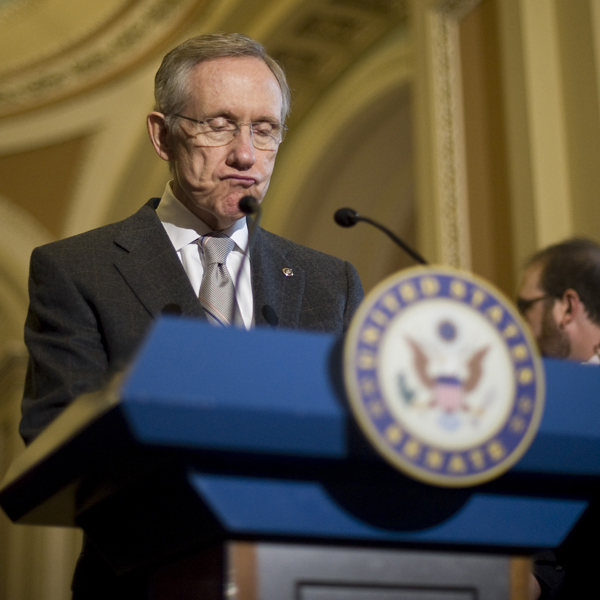In the coming days, Republicans could quietly weaken the health care law by imposing a major financial burden on middle-class consumers, without even having to put up a fight. And privately, Democratic sources in both chambers say they fear that the Senate Democratic leadership won’t go to bat to prevent it.
The issue arises because of a bipartisan consensus that one financing provision in the law — the so-called 1099 provision — should be repealed. Bipartisan majorities in both the House and Senate have voted to strike the measure, which requires businesses to report all transactions with vendors in excess of $600 to the IRS. Lax reporting requirements cost the U.S. Treasury billions of dollars a year.
So there are costs associated with repealing that provision that both sides agree have to be made up elsewhere. How you make up those costs is where the disagreement is? One option under serious consideration has backers of health care reform sweating bullets.
To offset the price of repealing the provision, the House and Senate have settled on different ways to pay for it. The Senate covers the cost by rescinding billions of dollars in federal spending. The House, by contrast, would require recipients of the law’s health insurance subsidies to cover the cost.
Under the House proposal, if you receive subsidies to buy health insurance based on a certain income level at the beginning of the year and your income subsequently increases during the year you would have to reimburse the government.
Here’s how it works.
The health care law subsidizes insurance coverage for consumers who make under 400 percent of the federal poverty level. As currently written, people on the cusp of that 400 percent line are protected if they received a modest raise or bonus that bumps them into a higher income bracket. The House bill, which passed last week, would eliminate that protection, and require those consumers to pay back their entire subsidy — a penalty that would amount to thousands of dollars.
Now the question is: which proposal (known in budget speak as a “payfor”) wins.
“Senator Reid has concerns with the unintended consequences of the health care credit offset and will consult with his Leadership Team and the Caucus on how to proceed,” says Jon Summers, spokesman for Senate Majority Leader Harry Reid.
Multiple Democratic sources say they’re worried leadership won’t pick a fight with the GOP over this because the 1099 provision itself is so unpopular. But if the House position prevails, it would essentially write a significant tax on middle class consumers into the health care law.
“This bill would saddle hundreds of thousands of middle-income taxpayers with a hefty tax increase,” said Rep. Sander Levin (D-MI), ranking member of the House Ways and Means Committee. “We all favor repealing 1099, but to do so on the backs of the middle class is irresponsible. With this legislation, Republicans continue their reckless overreach, this time by gouging middle-income taxpayers.”
In a Statement of Administration Policy issued last week, the White House took issue with both payfors, particularly the clawback proposal, but it stopped short of threatening to veto the House bill if it passes the Senate.
Congress modified the subsidies in the health care law in December to pay for higher Medicare reimbursement rates for doctors. Those changes to the bill’s so-called “true-up” provisions had broad bipartisan support, and eliminated the cliff at 400 percent of poverty that House Republicans (and many Democrats) are now trying to restore.






